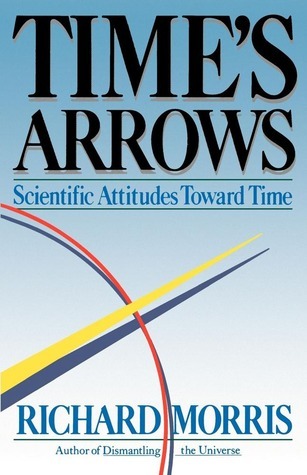
Time's Arrows: Scientific Attitudes Toward Time
Book Description
Time is not just a ticking clock; it's a mysterious force shaping reality itself. Richard Morris takes readers on a mind-bending journey through the scientific exploration of time’s elusive nature. This captivating narrative unravels the links between time, physics, and our existence, revealing how our understanding has evolved. From the Big Bang's echo to the heartbeat of quarks, every page pulses with excitement and intrigue. Dive into a world where every moment holds the key to deeper truths. What if the very fabric of time challenges everything you thought you knew about your place in the universe?
Quick Book Summary
"Time's Arrows: Scientific Attitudes Toward Time" by Richard Morris explores the enigmatic concept of time through a scientific lens, guiding readers across fundamental questions and wondrous discoveries. Morris traces humanity’s shifting understanding—from ancient philosophical musings about cycles and eternity, to the breakthroughs of Einstein’s relativity and the perplexing asymmetries of thermodynamics. The book delves into pivotal areas like the unidirectional arrow of time, time in quantum mechanics, and the profound implications for cosmology and daily existence. With clear explanations and compelling anecdotes, Morris unpacks how time shapes the universe, challenging our intuitions about cause and effect, memory, and even mortality. This book invites readers to contemplate where science ends and metaphysics begins in the quest to unravel time’s mysteries.
Summary of Key Ideas
Table of Contents
The Evolution of Time in Scientific Thought
Humanity’s understanding of time has evolved through a tapestry of myth, philosophy, and scientific inquiry. Early civilizations viewed time as cyclical, embedded in natural rhythms and reinforced by rituals and calendars. With the Enlightenment and the rise of modern science, time became linear, a stage upon which events unfolded in succession, measurable and precise. Newton’s laws depicted time as absolute and universal, marching forward unaffected by the events within it—a view later challenged and ultimately transformed by advancements in physics.
The Arrow of Time and Entropy
In exploring why time seems to flow inexorably forward, Morris delves into the concept of entropy—the tendency for systems to move from order to disorder—as articulated by the Second Law of Thermodynamics. This law introduces the “arrow of time,” giving rise to the everyday experiences of aging, memory, and causality. If all physical laws can run equally well backward, why do we remember the past but not the future? Entropy, according to Morris, is a central puzzle, defining a preferred direction and challenging notions of reversibility in physics.
Relativity and the Fluidity of Temporal Experience
Einstein’s theories of relativity revolutionized temporal understanding, showing that time is not absolute. Observers in different frames of reference experience time differently, affected by speed and gravity. The concept of spacetime intertwines time and space, altering our intuitions of simultaneity, duration, and cause-effect relationships. In practical terms, relativity’s insights underpin technologies like GPS, while philosophically, they unsettle the idea of a universal “now,” reinforcing time’s strange flexibility in the universe.
Quantum Mechanics and Temporal Paradoxes
Morris further probes the counterintuitive lessons of quantum mechanics, where time behaves even more mysteriously. Quantum events appear probabilistic and interconnected through nonlocal correlations (entanglement), suggesting time may not be fundamental at deeper levels of reality. Paradoxes like Schrödinger’s cat and the measurement problem highlight the limits of classical temporal reasoning, raising questions about determinism and the possibility of retrocausality—where effects might precede causes at the smallest scales.
Cosmology and the Boundaries of Time
Linking these threads, the book considers how time figures into cosmology—the study of the universe as a whole. The Big Bang marks a temporal boundary where space and time themselves begin, yet questions remain: What came before? Will time end? As Morris shows, scientific inquiry not only reveals astonishing truths about the universe's temporal nature but also confronts us with enduring mysteries. In grappling with time’s paradoxes, we deepen understanding of the cosmos—and our place within it.
Download This Summary
Get a free PDF of this summary instantly — no email required.





